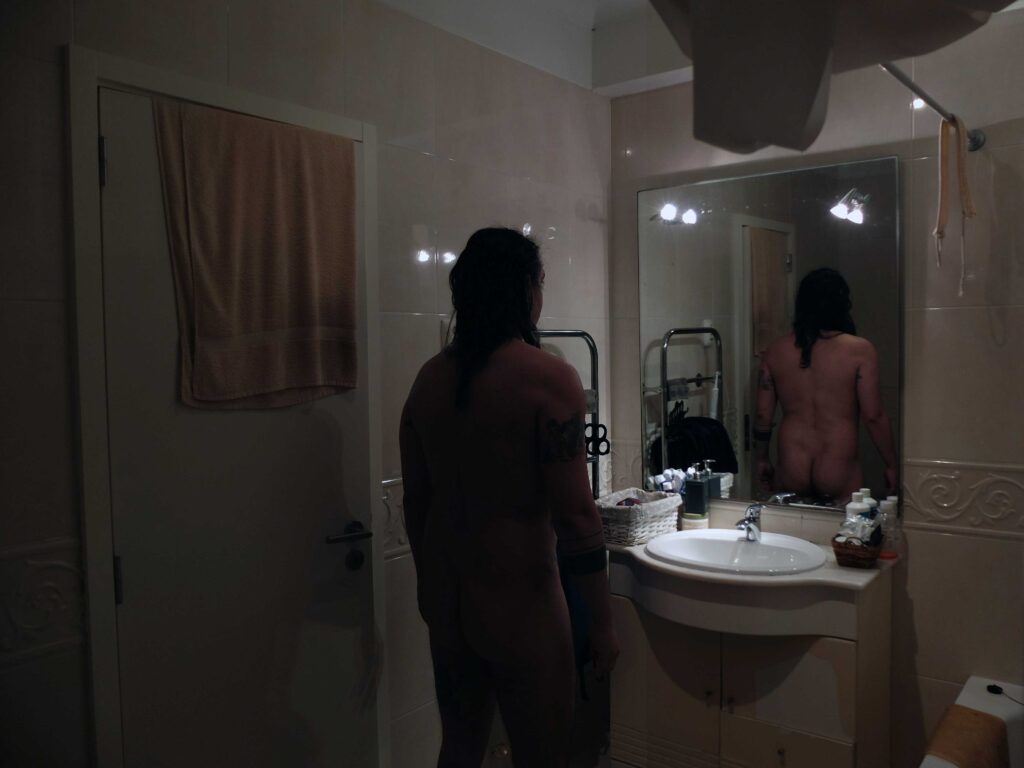Um homem vê o seu próprio reflexo voltar-lhe as costas, como se até a imagem que o espelho devolve recusasse reconhecê-lo. Ao lado, a lua cheia ergue-se no horizonte, suspensa entre duas árvores: uma robusta, vital; a outra frágil, quase despida. Entre o espelho e a paisagem, revela-se a noite escura da alma, esse território onde a identidade vacila, onde a autopreservação cede à indiferença, e o elo com o próprio ser se desfaz em silêncio.
Mas é precisamente nesse vazio que germina a possibilidade de retorno. A noite escura é purga e desmantelamento de ilusões, confronto com o que foi esquecido ou reprimido. É perda, sim, mas também abertura. Um tempo em que tudo se apaga para que algo autêntico possa emergir. Ao atravessar essa escuridão, foi possível reavaliar, reencontrar e, por fim, renascer.
English:
A man sees his own reflection turn its back on him, as if even the image returned by the mirror refused to recognize him. Beside him, the full moon rises on the horizon, suspended between two trees: one robust and full of life; the other fragile, nearly bare. Between the mirror and the landscape, the dark night of the soul is revealed, a territory where identity falters, where self-preservation gives way to indifference, and the bond with the self silently dissolves.
But it is precisely in this void that the possibility of return begins to take root. The dark night is a purge and a dismantling of illusions, a confrontation with what has been forgotten or repressed. It is loss, yes, but also an opening. A time when everything fades so that something authentic can emerge. In passing through this darkness, it became possible to reassess, to rediscover, and finally, to be reborn.

